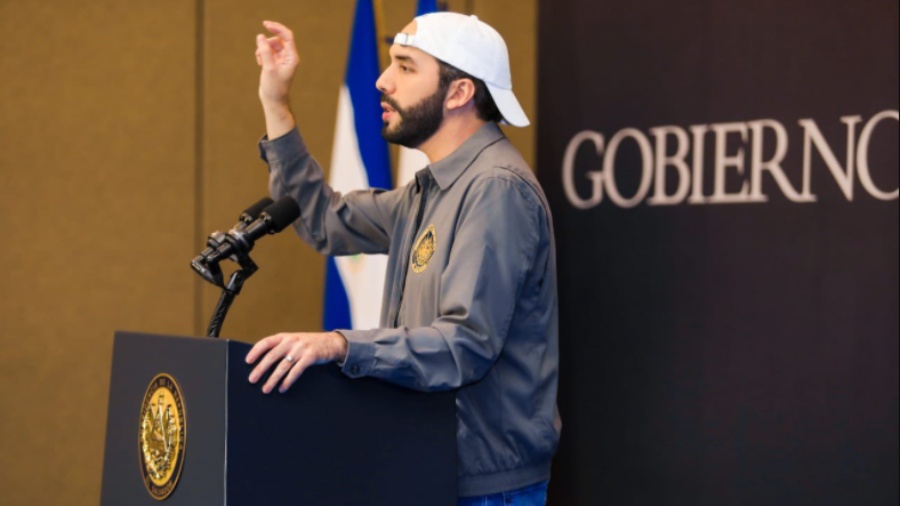
Civil society organizations proposed a new bill in the Assembly to facilitate the work of the CICIES.
President Nayib Bukele is afraid of losing control of the CICIES, which is why his rejection of the new project of “Special Law to facilitate the mandate of the International Commission against Impunity in El Salvador,” ARENA and delegates said. the FMLN this morning. .
“It goes beyond the framework he had, we have to remember who had it: Luis Almagro (Secretary General of the Organization of American States OAS), who made the bread in favor of Bukele, that CICIES as it was raised by them. (the government) were an offensive weapon for the opposition, not for them, ”confirmed FMLN deputy faction head Jorge Schafik Hándal.
Bukele published his rejection of said regulation after a press conference of several civil society organizations that raised the project before the Legislative Assembly in February 2021.
SEE: CICIES asks the government for reforms to step up the fight against corruption
However, the president responded on his Twitter account that none of the current legislature will be valid when the new Assembly takes office on May 1 next.
“Just by looking at the NGO logos behind this ‘proposal’ and seeing the ‘media’ publishing it, I’m sure this would be the worst thing we could do. Don’t insist, nothing that the outgoing Assembly approves will ever come into effect, ”said Bukele.
Some of the organizations that are in favor of the new law to facilitate the work of CICIES include the DTJ Foundation, Fepade, and Cristosal.
José Marinero, representative of the DTJ Foundation, asked President Bukele that instead of the organizations that designed the proposal, he should keep what he promised during his presidential campaign.
SEE: CICIES has filed three notices with the Public Prosecution Service for alleged corruption in public administration
“We reiterate the call for maturity and consistency with the promises he has made in the past and to put aside the logos of the organizations he dislikes, and hopefully he can see the substance of the proposal,” Marinero said Wednesday at a press conference.
According to Hándal, Bukele’s fear is due to the fact that there are more than 83 reports of corruption cases to the Public Prosecution Service for the management of state funds by government agencies used for the pandemic.
“About 83 cases were reported of funds allocated during the pandemic, of criminal companies between cabinet members or their relatives to bring medicines and other services needed, some of which have been taken to the prosecution service, some of which he did not report on. the height was. whether he did something to them or not, ”explained Handal.
Bukele’s rejection of a new ordinance to investigate corruption cases comes at a time when US Northern Triangle Special Envoy Ricardo Zúñiga is coming to El Salvador this Wednesday to meet with Attorney General Raúl Melara, right at the headquarters of the CICIES.
For ARENA deputy group head Julio Fabián, Bukele’s statements no longer surprise them. According to him, he is used to commenting without having more knowledge of how the proposals come about.
For Fabián, if the initiative is to improve and facilitate the work of CICIES, it must be approved by the General Assembly.
“ The CICIES should not be added to the executive, but to the public prosecutor’s office, in order to strengthen the research and scientific part and if it is to promote that support under the conditions prescribed by the constitution, that the governing body should must be. , as in those terms, I think it is right that the reforms can be implemented as soon as possible, as long as rights are not violated, ”said Fabián.
The initiative of civil society organizations was presented in the Assembly and aims, among other things, to give institutional and financial independence to the current CICIES.
The proposal takes over the Framework Cooperation Agreement signed by the Government and General Secretariat of the OAS on November 26, 2019. In addition, they request reform of the Code of Criminal Procedure so that CICIES can participate as a plaintiff in criminal proceedings that are developed in the country.
It also asks that the CICIES support the Public Prosecution Service in investigating and promoting criminal prosecution. According to the motion parties, the role of the CICIES is currently very limited, as the agreement is executive and in order to broaden its scope, it must be supported by a legislative decree.
Another aspect described in the proposal of the social organizations is to empower the CICIES to submit complaints and notices to the public prosecutor’s office and to be a complainant, along with mechanisms for transparency and citizen participation.